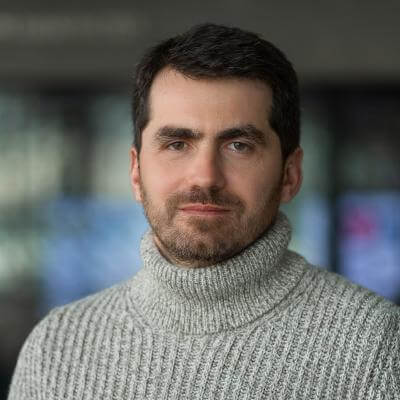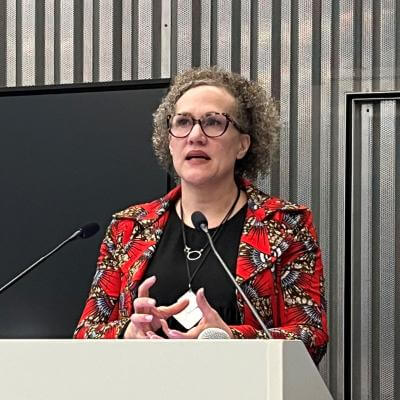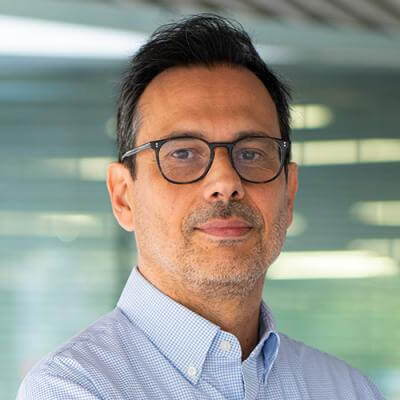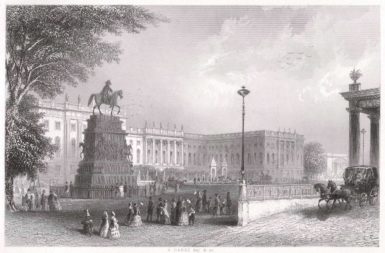University and Migration: New Directions for African Students
International student mobility has shown a steady upward trend over the past two decades, from 2.2 million to 6.4 million. Historically, student flows have been from the South to the North and from low-income to high-income countries. Today, however, more and more students, especially from sub-Saharan Africa, are also choosing to study in China. While France remains the most popular destination, with more than 137,000 students from the African continent in 2022, China is now a strong contender, from a few hundred in 2000 to 80,000 in 2020 with the United States hosting 40,000 in the same year. This surge in student mobility will only continue to increase over the next 20 years.
Therefore, students from Africa will be more and more exposed to different educational systems. For instance, despite their diversity, European education systems are characterised by a strong emphasis on theoretical knowledge and research. The United States encourages broader knowledge and critical thinking, but also practical training, while China’s education system insists on the accumulation of knowledge in the STEM (science, technology, engineering and mathematics) subjects. Besides educational systems, students also get in contact with different political, social and economic systems.

Given the tendency of African students to return to their home countries after their studies – for example, 70% of MBA students want to return to Africa after their studies in the top 10 European and American universities – it remains imperative for us to reflect on how exposure to diverse educational, social and political systems might impact developmental challenges and international relations in the future.
From an economic perspective, one can expect that the diversification of student destinations will be only beneficial to African countries. Students returning from Europe, the US and China may have acquired different skill sets. Students who have studied abroad may find themselves grappling with a complex interplay of Western and Chinese ideologies alongside their own. For instance, students educated in China could be equipped with the technical skills needed for infrastructure development, while students from the US could use their broader knowledge and innovative thinking to drive entrepreneurship. Students trained in Europe could provide sector-specific and research-based expertise. The main challenge will undoubtedly be to match these different skills so that they complement each other. Furthermore, as research has demonstrated, studying in different countries will also diversify economic relationships (see Wahba 2021 or OECD 2008). Students who graduate from European, American or Chinese universities will have set up distinct networks and acquired unique expertise about their host country, with which they might be more inclined to develop business relationships. This diversity can potentially benefit African nations, while also serving as a valuable lesson for host countries. Beyond providing education, the latter need to maintain connections with their graduates, recognising the substantial economic advantages that can emerge from such relationships.
From a socio-political perspective, however, the diversification of student destinations may have more complex implications for Africa. Unlike the different skill sets mentioned above, whose complementarity may well be beneficial to economic development, the different social and political values taught in European, American and Chinese institutions may prove harder to reconcile. For example, if more students study in China, it will certainly diversify global perspectives and strengthen China’s soft power in Africa. At the same time, it will also create competition with the values and social ideas taught in American and European universities. Resulting from this, students who have studied abroad may find themselves grappling with a complex interplay of Western and Chinese ideologies alongside their own. For instance, when it comes to collaborating with international development partners, returning students may find themselves struggling to find an elusive middle ground between Western and Chinese perspectives. This could potentially hinder the efficiency of decision-making and execution in international development efforts.

In the quest to advance their own interests, we should anticipate a growing competition between Europe, the United States and China to attract African students. This competition will offer various opportunities for the economic, political and social development of African states, provided they know how to leverage the many educational experiences that their students gain abroad while ensuring that diverse political and social perspectives contribute to African long-term development goals. In that respect, platforms could be created where returning, but also leaving students might share experiences, perspectives and insights into various issues that are relevant for the development of their countries. In addition, government negotiations with development partners should guarantee a collaborative and integrative approach that allows all perspectives to be heard before key decisions are taken.
TABLE: Roles and Missions of the University
| Regime | Role and missions |
|---|---|
| Medieval University | Serving God and Church; Serving Science |
| Westphalian University | Serving Science; Serving State and Nation |
| Postmodern University | Serving Society and Humanity; Serving the Market |
Source: Marie-Laure Salles-Djelic, “Scholars in the Audit Society: Understanding our Contemporary Iron Cage”, in Scholars in Action: Past – Present – Future, ed. Lars Engwall (Uppsala Universitet, 2012), p. 99.
DEFINITIONS: Selection of Terms Related to Higher Education
A university (from Latin universitas “a whole”) is an institution of higher (or tertiary) education and research which awards academic degrees in several academic disciplines. Universities typically offer both undergraduate and postgraduate programmes. The word university is derived from the Latin phrase universitas magistrorum et scholarium, which roughly means “community of teachers and scholars”. (Wikipedia)
Higher education, also called post-secondary education, third-level or tertiary education, is an optional final stage of formal learning that occurs after completion of secondary education. This consists of universities, colleges and polytechnics that offer formal degrees beyond high school or secondary school education. The right of access to higher education is mentioned in a number of international human rights instruments. The UN International Covenant on Economic, Social and Cultural Rights of 1966 declares, in Article 13, that “higher education shall be made equally accessible to all, on the basis of capacity, by every appropriate means, and in particular by the progressive introduction of free education”. (Wikipedia)
A college (Latin collegium) is an educational institution or a constituent part of one. In most of the world, a college may be a high school or secondary school, a college of further education, a training institution that awards trade qualifications, a higher-education provider that does not have university status (often without its own degree-awarding powers), or a constituent part of a university. The word is generally also used as a synonym for a university in the US. (Wikipedia)
Apprenticeship is a system for training a new generation of practitioners of a trade or profession with on-the-job training and often some accompanying study (classroom work and reading). Apprenticeships can also enable practitioners to gain a license to practice in a regulated occupation. Most of their training is done while working for an employer who helps the apprentices learn their trade or profession, in exchange for their continued labor for an agreed period after they have achieved measurable competencies. (Wikipedia)
An information society is a society where the usage, creation, distribution, manipulation and integration of information is a significant activity. Its main drivers are information and communication technologies, which have resulted in rapid growth of a variety of forms of information. Proponents of this theory posit that these technologies are impacting most important forms of social organisation, including education, economy, health, government, warfare, and levels of democracy. (Wikipedia)
A knowledge society generates, shares and makes available to all members of the society knowledge that may be used to improve the human condition. A knowledge society differs from an information society in that the former serves to transform information into resources that allow society to take effective action, while the latter only creates and disseminates the raw data. The capacity to gather and analyse information has existed throughout human history. However, the idea of the present-day knowledge society is based on the vast increase in data creation and information dissemination that results from the innovation of information technologies. (Wikipedia)
Wikipedia
TABLE: The Top 12 Host Countries of International Students in 2022 (by number of students)
| USA | 948'519 |
| UK | 633'910 |
| Canada | 552'580 |
| France | 364'756 |
| Australia | 363'859 |
| Russia | 351'127 |
| Germany | 324'729 |
| China | 296'611 |
| Japan | 201'877 |
| Italy | 125'470 |
| Netherlands | 115'068 |
| Argentina | 108'180 |
Source: Project Atlas.
GRAPH: The Twelve Countries with the Most Universities in 2023
BOX: The Humboldtian Model of Higher Education
The Humboldtian model of higher education or Humboldt’s Ideal is a concept of academic education that emerged in the early 19th century and whose core idea is a holistic combination of research and studies. It integrates the arts and sciences with research to achieve both comprehensive general learning and cultural knowledge. Several elements of the Humboldtian model heavily influenced and subsequently became part of the concept of the research university. The Humboldtian model goes back to Wilhelm von Humboldt, a Prussian philosopher, government functionary and diplomat who, in the time of the Prussian reforms, relied on a growing, educated middle class to promote his claims about general education.
As a privy councillor in the Interior Ministry, he reformed the Prussian education system according to humanist principles. He founded the University of Berlin, appointing distinguished scholars to both teach and conduct research there. Several scholars have labeled him the most influential education official in German history. Humboldt sought to create an educational system based on unbiased knowledge and analysis, combining research and teaching while allowing students to choose their own course of study. The University of Berlin was later named the Humboldt University of Berlin, after him and his brother, the naturalist Alexander von Humboldt. His educational model went beyond vocational training in Germany.
In a letter to the Prussian king, he wrote: “There are undeniably certain kinds of knowledge that must be of a general nature and, more importantly, a certain cultivation of the mind and character that nobody can afford to be without. People obviously cannot be good craftworkers, merchants, soldiers or businessmen unless, regardless of their occupation, they are good, upstanding and – according to their condition – well-informed human beings and citizens. If this basis is laid through schooling, vocational skills are easily acquired later on, and a person is always free to move from one occupation to another, as so often happens in life.”
The philosopher and former State Minister for Culture of the Federal Republic of Germany, Julian Nida-Rümelin, has criticised discrepancies between Humboldt’s ideals and the contemporary European education policy, which narrowly understands education as preparation for the labor market, arguing instead that one needs to decide between McKinsey’s and Humboldt’s ideals.
Wikipedia
VIDEO: What Are Assets, and Why Do They Matter?
Additional information: https://www.lancaster.ac.uk/universities-and-unicorns/.
Source: Science Animated, https://sciani.com.
VIDEO: What Are the Key Tensions in Educational Technology?
Additional information: https://www.lancaster.ac.uk/universities-and-unicorns/.
Source: Science Animated, https://sciani.com/.
VIDEO: The UNESCO Chair in Comparative Education Policy, with Chanwoong Baek
Research Office, Geneva Graduate Institute.
VIDEO: University in Question, with Marie-Laure Salles
Research Office, Geneva Graduate Institute















